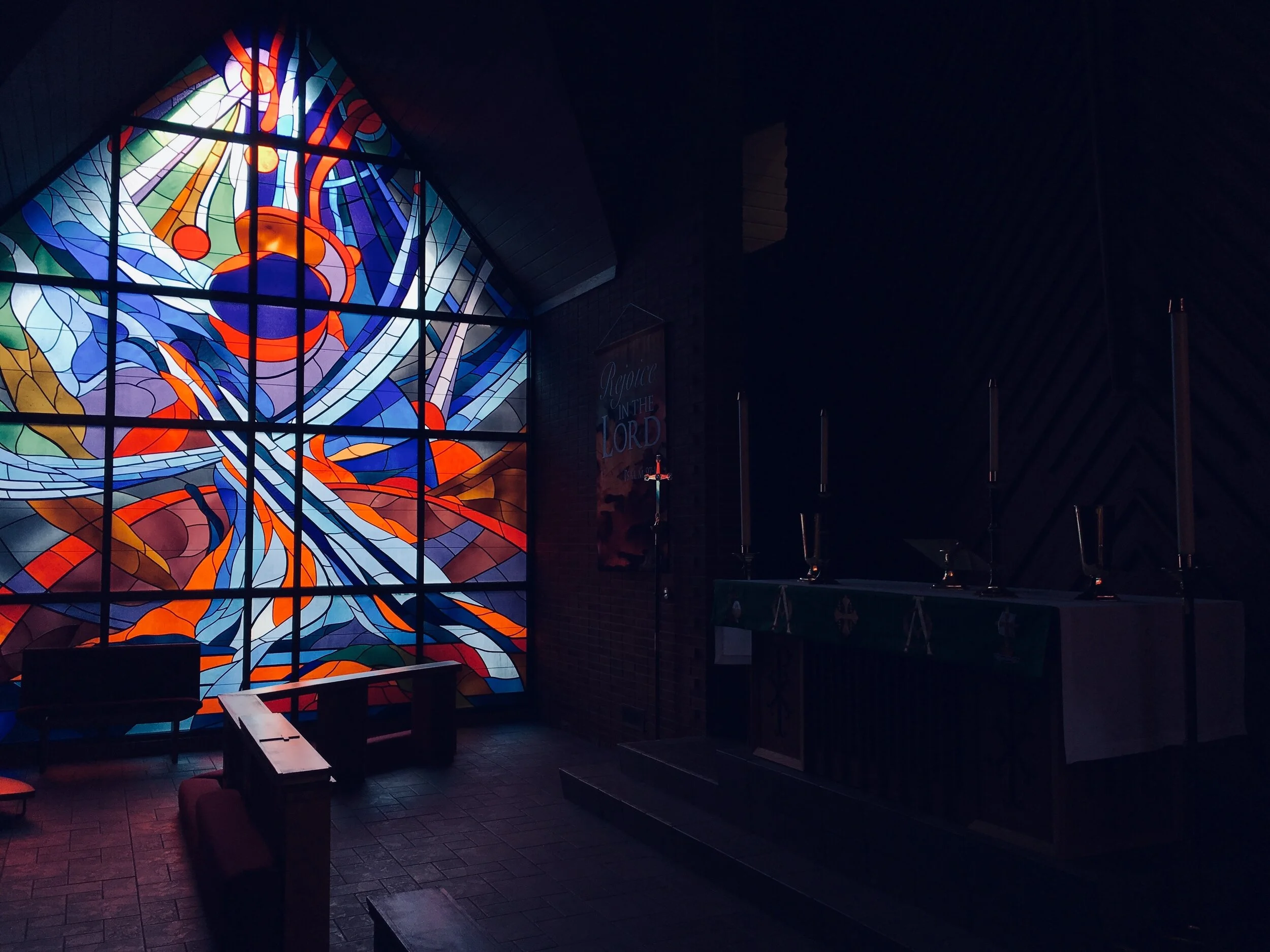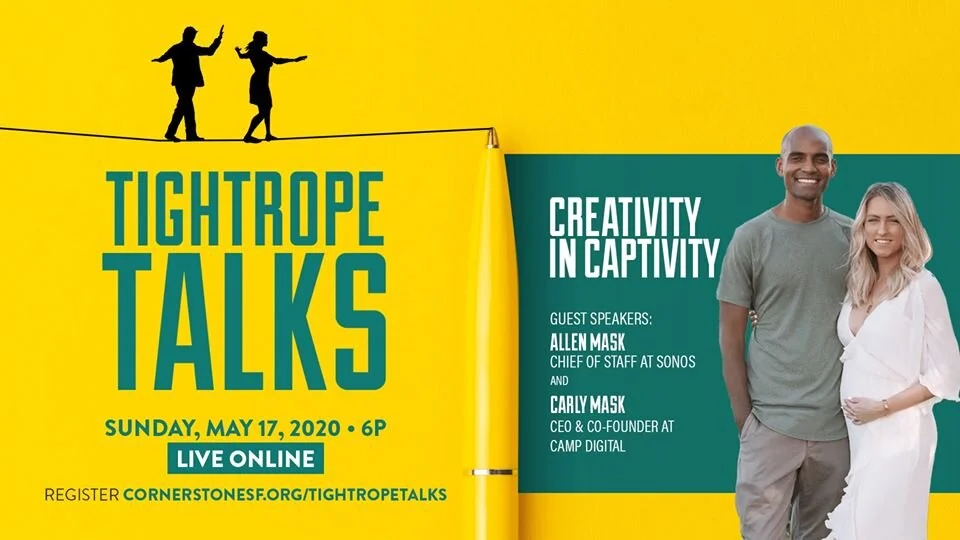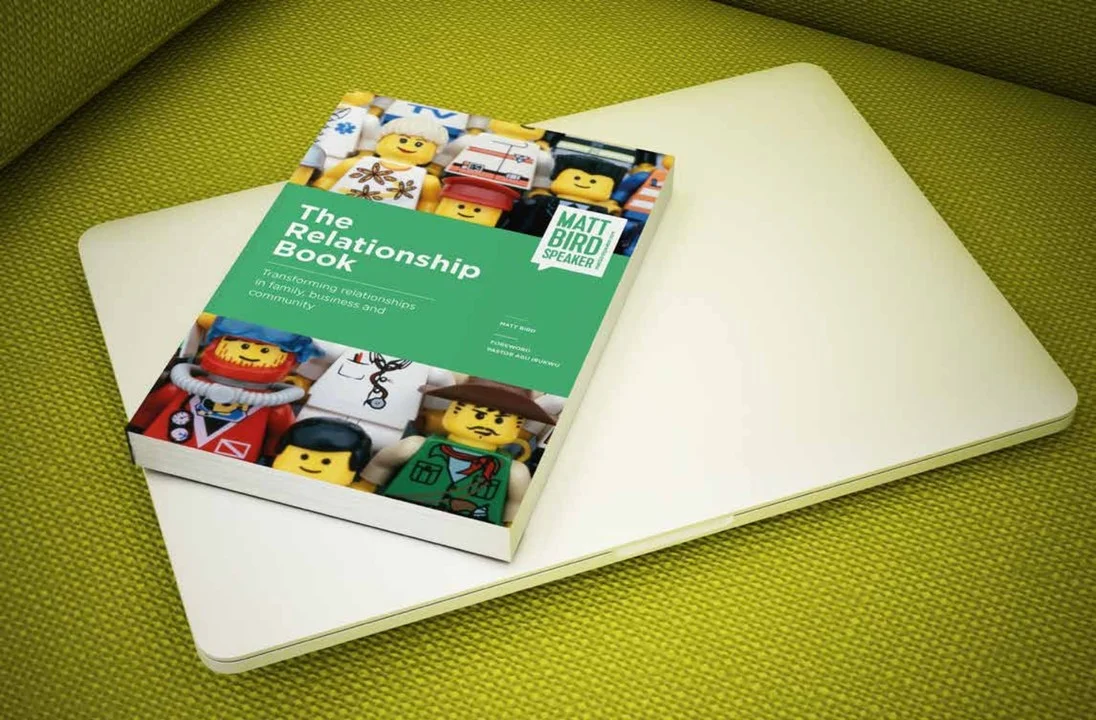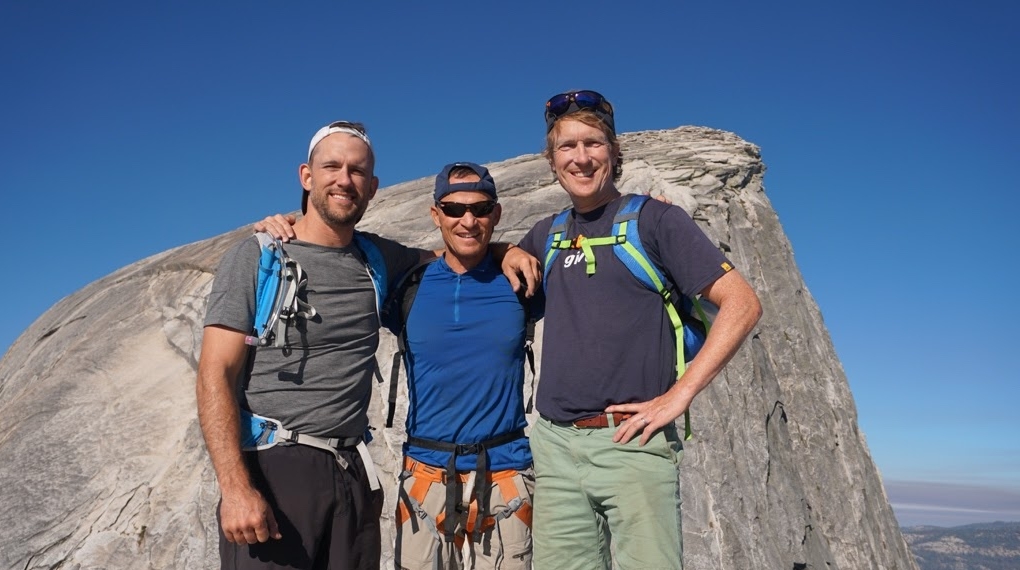Faithful vs. Willful Comes Down to a Question of Identity
by J.D. Greear
Achieve, work harder, be a go-getter, pursue. These concepts which are so familiar to entrepreneurs are not inherently bad but have the potential to knock us on our backs if not kept in the right context. And that context includes a prioritization of rest, trusting the Lord to accomplish his work. JD Greear shares with us the importance of recognizing how faithfulness to the Lord’s call both to work and rest is a key component to living in our Christ-centered identity as faith driven entrepreneurs.
It's easy for those with a passion for business or for entrepreneurial work who are good at it, to get so consumed in it that it becomes their entire identity.
Jesus told his followers that they were to be part of his body, a local church. Jesus never approved of Lone Ranger Christians. If you love Jesus, he wants you to be committed as a member of his body with deep relationships and opportunities for service in that body. You are a friend. That's another one of your roles, and you need to be a good friend. And that takes time to develop you. You can have also can have responsibilities to yourself, and that is to stay healthy physically and emotionally. It's easy to sacrifice one of these identities in order to get success in business as if that's your only identity. But that's not success. It is impossible to call yourself successful. If you live that way, God has not called you first to success. He's called you first of faithfulness and faithfulness means faithfully fulfilling all the roles that God has given you. And when you embrace that, what you're going to find is that this crushing burden is lifted off of your shoulders.
In Psalm 127, the psalmist writes, unless the Lord builds the house, those who built it labor in vain, unless the Lord watches over the city. The Watchmen stays awake in vain. It is in vain that you rise up early and go late to rest…the point is, that when you are walking with God and when you're just focused on being faithful, you have the capacity to take the rest that you need because it's not all on you. You see, here's the dilemma of the song. If the watchman is asleep, well, then who's guarding the city? If the contractor is asleep, who's building the house? And the Psalmist smiles very sweetly when you ask that. And he says, easy, God is rest. The Lord builds the house, those who build it labor in vain. He's saying that even the best watchman and even the best contractors have limitations and God promises to be the one who fills in the gap, because of those limitations, to make up the difference. If we trust him, listen, entrepreneur or business owner especially, it is ultimately not your responsibility to guarantee the safety of the city. It's not even your responsibility to make the crops flourish. It is your responsibility to be faithful and to faithfully fulfill the roles he's given you. And after you've been faithful, you can lie down to sleep, whether literally or metaphorically, and you can leave the rest in his hand. God designed you so that you needed sleep. You needed a Sabbath to take a day, a week to rest, to turn yourself off. And during those times, you worked to remind yourself daily and weekly that you are not God.
Hey, good news. The weight of the city is not on you, which means you have the luxury of resting. I've heard it said like this: in Christ, all you can do is all you can do. And the good news is in Christ, all you can do is enough.
Related articles
One of the hardest things many of us experience is waiting for what is next. For what’s to come. When will I get the promotion? When will I get the job? When will I get the new clients? When will this business start to take off? Why is it taking so long?
Fear and trembling aren’t bad or wrong. But you cannot ignore what comes before and behind: that we have the joy of obedience because we are blessed to know the end of the story, and that it is God who is working in and through us to carry out His good purpose.
No matter what happens, I will strive to continue living shalom, because it is not dependent upon my financial success or how well I manage a company or whatever else may happen in my life, but rather on my daily obedience to God’s calling.
The story of Jacob in the Old Testament is a fascinating tale of pride, humility, success, failure and a man who (quite literally) wrestled with the Lord.
Achieve, work harder, be a go-getter, pursue. These concepts which are so familiar to entrepreneurs are not inherently bad but have the potential to knock us on our backs if not kept in the right context.
What if God is glorified by taking us to Red Sea Moments on purpose? How do you respond as a leader when you find yourself up against the wall?
Each season is indeed remarkable. However, the season I want to focus on is winter. With everything gray and cold, winter can seem like a lost season. But it isn’t. In fact it’s vital for the garden.
For the first time since the threat of nuclear annihilation hung over the UK in the 60s, millions of us are worried about dying, or worried about someone else dying. Suddenly, the question ‘if you were to die tonight, where would you go?’ has a fresh pertinence.
Survival is a funny thing. Survival can feel good. The adrenaline rush which comes from dodging a train is a good one. But if we get into a habit of just avoiding bad outcomes, we can easily start redefining success as “we’re good at avoiding bad outcomes.”
I never saw it coming. I started my business part-time in January, 2000, and I completed my MBA in September of the same year. I purchased my second new construction home. Things were going well, and I could not have been happier.
Both the most generous and the most covetous people I’ve ever met have been people on the low end of the economic ladder. The generosity I received a few years ago in Uganda among the poorest of the global poor, at times, brought me to tears.
Although pain is inevitable, misery is optional. The same calamity can produce positive change in one person and cause caustic bitterness in another. Whether pain's life-shaping power makes us better or bitter depends on what we believe about God.
It’s now clear that COVID-19 is a deadly serious global pandemic, and all necessary precautions should be taken. Still, C. S. Lewis’s words—written 72 years ago—ring with some relevance for us. Just replace “atomic bomb” with “coronavirus.”
None of us, including experienced business people, have led a company in such a time as this. For over 20 years, Charlie Paparelli has been an professional angel investor and entrepreneur, co-founding 12 startups and investing in twenty-three. Read his take on where we go from here…
“The scripture speaks of God ‘shaking things that can be shaken that the things that cannot be shaken may remain.’ He has a way of doing that in big and little ways. He shakes things. He is not a God of the status quo. And why is that true? It is true because in a static world we would never grow or be conformed to the image of Christ and there would be no need for faith. We could simply live ‘by sight.’ That’s not His plan.” This message was originally sent from The C12 Group Founder Buck Jacobs to C12 Group members. The C12 team hopes his words offer peace, calm and hope while being extremely timely and profound.
When we (C12 Group) first began to release information, resources and guidance on playing offense in regards to COVID-19 in February there were some reports of “what’s the big deal, it’s not effecting my city, business, industry.” Those delusions are quickly fading. As a global economy, human race, and universal Church everyone is and will be effected in one way or another.
Elbow grease and a hard work ethic are found within the heart of every entrepreneur, but Tom Strickland of Suncoast Team Services possesses something stronger: the fervent desire to see God honored in every build. Tom realizes that the successful entrepreneur is the man or woman that relinquishes control to God, and that the success or failure of a project is in the Master Builder’s capable hands.
Jerry Colangelo is a legend in the world of professional sports, but that isn’t how he wants to be remembered. Instead, Jerry hopes that when people think of him they will say, “He cared.”
Rather than succumb to the negativity that was permeating our culture in the 2009 economic crisis, Derek had a vision of launching a new business that would provide jobs, hope and source of optimism. What was that vision? It was that of a self-serve frozen yogurt shop.
Norm Miller, founder of I Am Second Leadership, told TwoTen about how his desires became less about him and more about Him. To date, the “I Am Second” web site has been visited over ten million times in over 56 countries. More of that journey is included in this blog post ...
For over 20 years, Charlie Paparelli has been an professional angel investor and entrepreneur, co-founding 12 startups and investing in 23. On a daily basis, he mentors 10 startup founders and advises many more. Read more about his 11 thoughts on how to see failure as an entrepreneur.a
We’re huge fans of DIFW, Jeff Haanen, and their podcast The Faith & Work Podcast. They recently interviewed New York Times columnist and best-selling author David Brooks about his new book The Second Mountain. We highly recommend you listen in!
Located in the heart of downtown Chattanooga, First Presbyterian frequently receives requests for financial assistance from local residents. Over the past decade, the church has intentionally changed the way they help their neighbors in need.
Whether you’re trying to trust yourself, your employees, or God, letting go of the desire for control never seems to get any easier. Today, we have a parable from Henri Nouwen on this very idea.
Let’s not let our identity or vision be an excuse for bad leadership, but rather the fuel and motivator for great leadership. One of my agendas in the work I do, frankly, is to redeem the brand dignity of “Christian business leadership” to be associated with the very highest standards in society
‘It is human to crave certainty. The problem with certainty is that it creates self-sufficiency. If we feel that we know everything or have everything, why would we need God?’ Find out more in this extract from 'The Relationship Book' by Matt Bird.
“If you've been following us at FDE for a while, you know that the concepts of identity and generosity are two of them. A third, and the subject of this blog, is the difference between being faithful and willful. As entrepreneurs, things seemed to go well when we were faithful, things tended not to go well when we were willful. I hope you are blessed by David Morken’s (CEO of Bandwidth) note the way that I have been…”
——
[ Photo by Joshua Eckstein on Unsplash ]





























Sometimes the journey of faith is more important than the actual on-going success of a business.